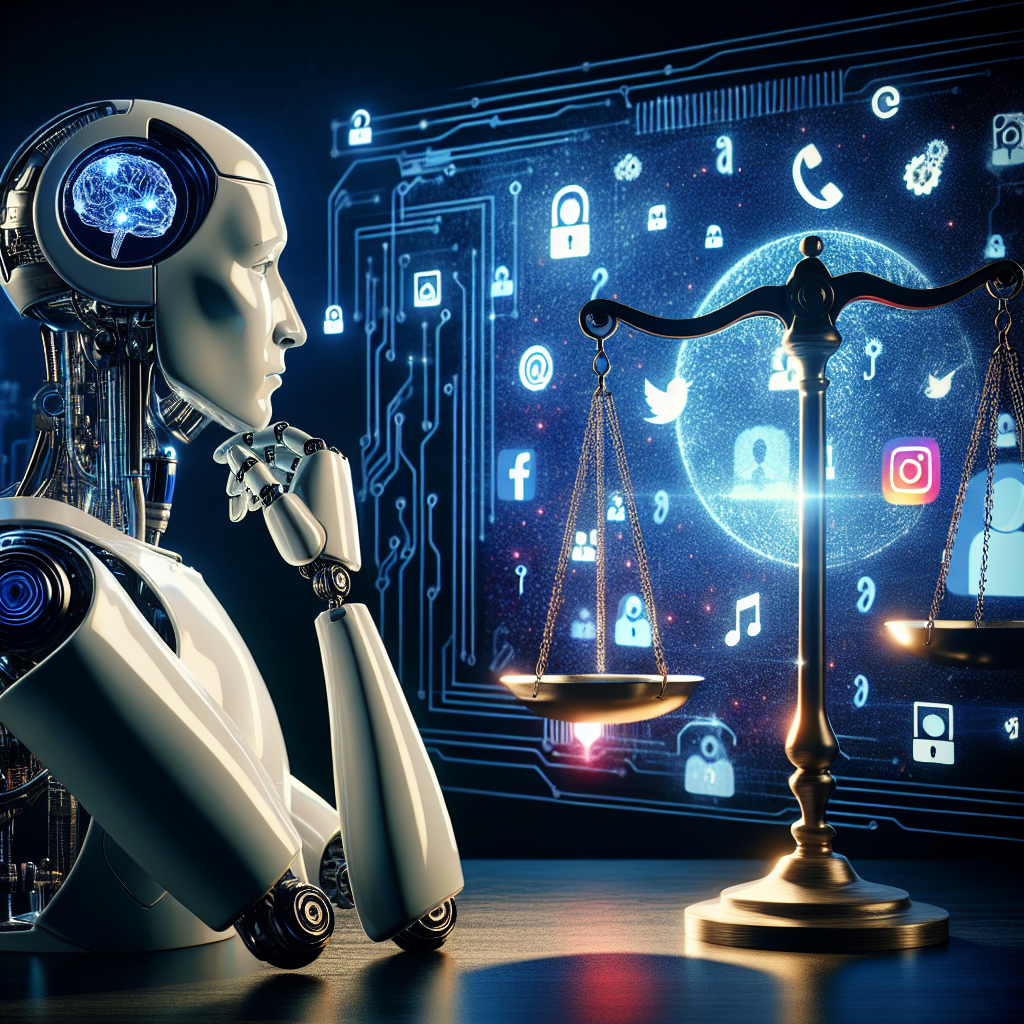Artificial Intelligence (AI) has revolutionized the way we use social media, from personalized recommendations to automated content moderation. While these advancements have made our online experiences more convenient and efficient, they have also raised several ethical dilemmas that must be addressed.
One of the primary ethical quandaries of AI in social media is the issue of data privacy. As AI algorithms collect and analyze massive amounts of user data to deliver personalized content, there is a risk of this information being misused or exploited. Social media platforms have access to a wealth of personal information about their users, including their browsing history, location data, and social connections. This data can be used to target users with tailored advertisements, manipulate their online behavior, or even influence their opinions and beliefs.
Another ethical concern is the lack of transparency and accountability in AI algorithms. Many social media platforms use complex machine learning algorithms to make decisions about what content to show to users. However, these algorithms are often opaque and difficult to audit, making it challenging to understand how they work and whether they are making fair and unbiased decisions. This lack of transparency can lead to algorithmic biases and discrimination, such as showing certain users more relevant content or excluding others based on their demographic or behavioral traits.
Furthermore, AI-powered social media systems are susceptible to manipulation and misuse. Bad actors can exploit AI algorithms to spread misinformation, amplify hate speech, or create fake accounts to deceive users. This can have serious consequences for society, promoting polarization, undermining democratic processes, and eroding trust in online platforms. As AI becomes more sophisticated, the potential for harm from malicious manipulation will only increase, necessitating stricter regulations and ethical guidelines to protect users from these threats.
In addition to these ethical concerns, the automation of content moderation by AI raises questions about censorship and free speech. While AI can help platforms identify and remove harmful or inappropriate content at scale, it can also lead to overzealous censorship and the suppression of legitimate speech. There is a delicate balance to be struck between protecting users from harmful content and ensuring that platforms do not infringe on their right to free expression. As social media companies grapple with these competing priorities, they must consider how AI can be used responsibly to enforce community standards without stifling diversity of opinions and perspectives.
Despite these ethical challenges, there are also opportunities for AI to improve the ethical landscape of social media. For example, AI can help detect and combat online harassment, bullying, and hate speech by identifying patterns of abusive behavior and enforcing community guidelines more effectively. AI-powered tools can also empower users to control their online experience by giving them more control over their privacy settings, content preferences, and personalized recommendations. By harnessing the potential of AI for positive social impact, social media platforms can enhance user trust, engagement, and safety online.
In conclusion, the ethical quandaries of AI in social media are complex and multifaceted, requiring careful consideration and thoughtful solutions. As AI continues to transform the way we communicate, connect, and consume information online, it is crucial that we address these ethical concerns proactively to ensure that technology serves the best interests of society as a whole. By promoting transparency, accountability, and responsible use of AI in social media, we can harness the power of technology to create a safer, more inclusive, and more ethical online environment for all users.
FAQs:
Q: How can social media platforms ensure the ethical use of AI algorithms?
A: Social media platforms can promote transparency and accountability in AI algorithms by providing clear explanations of how they work, conducting regular audits to identify biases and discrimination, and engaging with external experts and regulators to ensure ethical guidelines are followed.
Q: What are the risks of AI-powered content moderation in social media?
A: The risks of AI-powered content moderation include over-censorship, algorithmic biases, and the proliferation of harmful or inappropriate content that may go undetected. Social media platforms must strike a balance between protecting users from harmful content and upholding their right to free expression.
Q: How can AI be used to combat misinformation and fake news on social media?
A: AI can be used to detect and flag misleading or false information by analyzing patterns of content distribution, identifying suspicious accounts or sources, and fact-checking claims against reputable sources. By leveraging AI for content verification, social media platforms can reduce the spread of misinformation and build user trust in the authenticity of online content.
